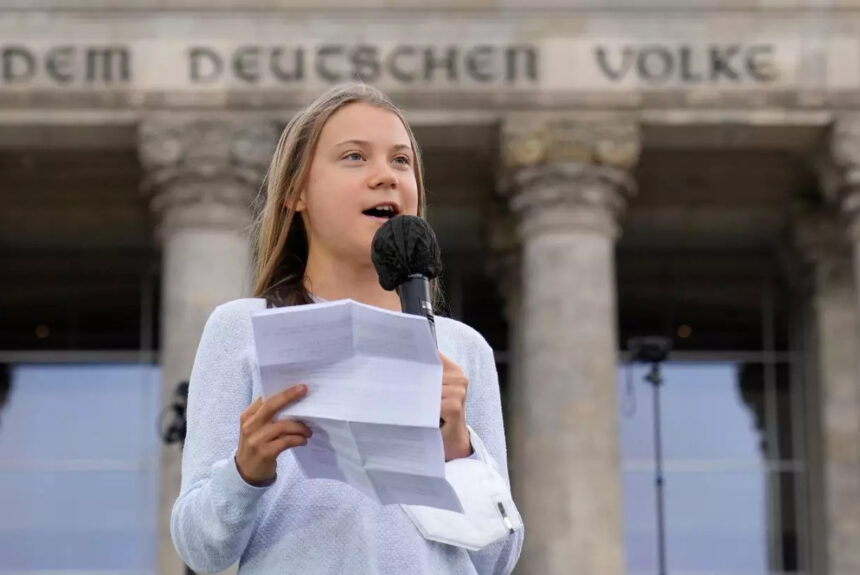In a pleasantly-surprising turn of events, climate activist Greta Thunberg said in an interview last week that she’s in favor of keeping existing nuclear plants running.
This is no small about-face for Greta, as she lobbied against the European Union designating nuclear energy as “sustainable” just a few months ago. Her change in rhetoric – joining a chorus of former nuclear naysayers – demonstrates a clear and rational consensus that nuclear power must be a part of our energy portfolio moving forward.
>>>READ: Let’s Remind Ourselves Again: Nuclear Energy Is Safe
More than that, we must embrace nuclear energy for what it is: the safest, cleanest, most reliable form of energy at our disposal. The mistakes of the past cannot control our energy future, and anti-nuclear activists need to see the light.
Here in the United States, anti-nuclear activists have had a significant impact on the decline of the nuclear industry. Led by high-profile figures like Jane Fonda, these activists protested against the expansion of the industry and made nuclear energy synonymous with the toxic green sludge depicted on The Simpsons. Indeed, nuclear power has been declining for decades. In 1996, it provided about 17% of global energy production; today it’s around 10%. Domestically, 12 reactors have been closed since 2012, while countries like Germany and Japan embarked on complete nuclear phaseouts in the wake of the 2011 Fukushima reactor meltdown. According to the Energy Information Administration, the share of American electricity generation from nuclear power will decline from 20% today to 11% by 2050, if we don’t change course.
Europe is currently experiencing the pitfalls of abandoning nuclear energy. As parts of the continent phased out their nuclear plants, they simultaneously increased their reliance on fossil fuel imports from Vladimir Putin’s Russia. Putting aside the fact that European countries are indirectly financing the Kremlin’s war in Ukraine through their dependence on Russian energy, everyday citizens are also hurting due to record energy prices, and some governments are worried they don’t have enough fuel to last the winter. If the choice is between nuclear power plants and reliance on authoritarian dictatorships, the answer should be pretty clear even to the most ardent anti-nuclear environmentalist.
Yet, the importance of nuclear energy extends beyond concerns over energy security and consumer prices. As countries increasingly seek to transition away from fossil fuels to clean energy, it’s unclear how they’ll be able to achieve this without the zero-emissions baseload source of energy that is nuclear power. Germany tried to replace its nuclear plants with renewable sources of energy such as wind and solar. Yet, due to their inherent intermittency, generating power only when the sun shines or the wind blows, Germany is forced to turn to burning trees and reopening shuttered coal plants to provide enough baseload power to get through the winter.
>>>READ: Modernize Nuclear Energy Regulations to Fight Climate Change
In contrast, nuclear energy is capable of producing energy without carbon emissions and of doing so 24 hours a day, 365 days a year. Tackling climate change requires reducing greenhouse gas emissions, but we can’t do so at the expense of economic prosperity or human wellbeing. Nuclear energy is the only source of power that is abundantly reliable, affordable, and clean, allowing us to tackle climate change without sacrificing our economies.
As a figurehead in climate activism, Greta Thunberg’s interview is incredibly important for the climate movement in general. While conservative environmentalists like myself have long advocated for nuclear energy, left-leaning, mainstream environmentalists have typically pushed back. This has to change if we’re going to make significant progress toward our stated climate goals. While wind and solar have a big part to play in reducing emissions, we will never get to a zero-emissions world that also has reliable and abundant energy, without nuclear energy.
Christopher Barnard is the national policy director at the American Conservation Coalition (ACC). Follow him on Twitter @ChrisBarnardDL.
The views and opinions expressed are those of the author’s and do not necessarily reflect the official policy or position of C3.
